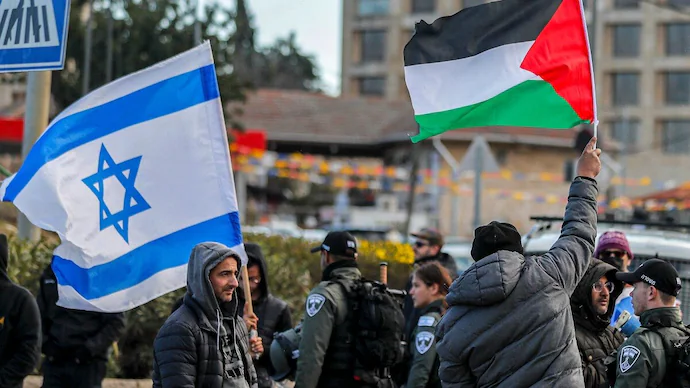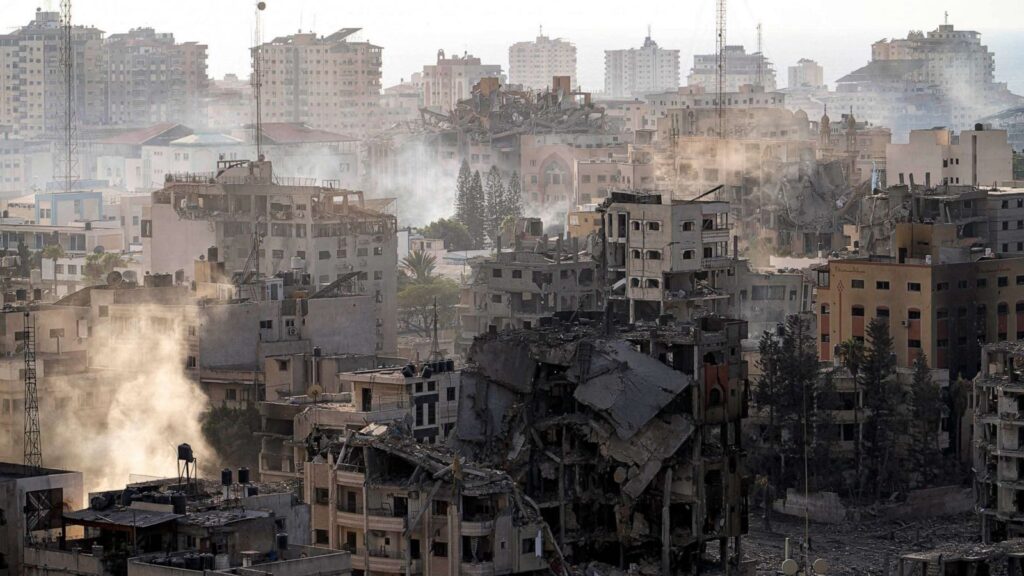
Understanding the Israel Palestine War: Key Causes, Current Events, and Possible Solutions
The Israel-Palestine conflict is one of the most enduring and controversial geopolitical issues in the modern world. Israel Palestine War With its roots stretching back over a century, this conflict has been marked by wars, peace treaties, and ongoing tensions. As of 2024, the situation continues to evolve, drawing the attention of global governments, media, and human rights organizations. Understanding the historical background, current events, and potential paths to peace is crucial in grasping the complexities of the Israel-Palestine conflict.

A Brief History of the Israel-Palestine Conflict
The origins of the Israel-Palestine conflict date back to the late 19th and early 20th centuries. The rise of Zionism, a Jewish nationalist movement aimed at establishing a homeland in Palestine, collided with the growing Arab nationalism in the region. This area, which was part of the Ottoman Empire until its dissolution after World War I, became a focal point of Jewish immigration and settlement.
In 1947, the United Nations put forward a partition plan to split Palestine into independent Jewish and Arab states, with Jerusalem designated as an international zone. Jewish leaders accepted the proposal, but Arab leaders opposed it, sparking the 1948 Arab-Israeli War and the subsequent founding of the state of Israel. Since then, numerous wars (such as those in 1967 and 1973), intifadas (Palestinian uprisings), and peace efforts have taken place, yet a resolution remains elusive.
Current Events: The 2024 Israel-Palestine Conflict Escalation
In 2024, violence between Israel and Palestine reached new heights, sparking concern from the international community. Tensions flared up following contentious settlements in the West Bank and clashes in East Jerusalem. Hamas, a Palestinian Islamist militant group controlling the Gaza Strip, launched rocket attacks into Israel, prompting retaliatory airstrikes. The escalating cycle of violence has resulted in hundreds of civilian deaths and widespread destruction in Gaza and parts of Israel.
The ongoing conflict has drawn attention to key issues at the heart of the violence: the status of Jerusalem, illegal settlements, the right of return for Palestinian refugees, and the blockade of Gaza. Despite numerous attempts at brokering ceasefires, both sides remain entrenched in their positions, with little hope for a lasting peace agreement on the horizon.
Key Causes of the Israel-Palestine Conflict
1. Territorial Disputes
One of the primary causes of the conflict is the dispute over land. Palestinians claim the West Bank, Gaza Strip, and East Jerusalem as part of their future state, while Israel has established settlements in these areas, particularly the West Bank. The status of these settlements and borders is a key point of contention.
2. Religious Significance
Jerusalem holds deep religious significance for Jews, Muslims, and Christians alike. Control over the city, especially the Temple Mount/Haram al-Sharif, is a sensitive issue that has fueled much of the violence. Both Israelis and Palestinians view Jerusalem as their capital.
3. Palestinian Refugees
The right of return for Palestinian refugees, displaced during the 1948 Arab-Israeli War and subsequent conflicts, is another contentious issue. Palestinians demand that these refugees and their descendants be allowed to return to their homes, while Israel argues that this would undermine the Jewish character of the state.
4. Security Concerns
Israel’s primary concern is security, particularly from militant groups such as Hamas and Hezbollah. The country has experienced rocket attacks, suicide bombings, and other forms of violence. Palestinians, on the other hand, face restrictions on movement and the blockade of Gaza, which they argue leads to economic hardship and contributes to the cycle of violence.
The Role of International Actors
Israel Palestine War The international community plays a pivotal role in the Israel-Palestine conflict. Countries like the United States have historically supported Israel, providing financial and military aid. Israel Palestine War Conversely, many Arab nations, along with organizations like the United Nations, have voiced support for Palestinian statehood.
Israel Palestine War Efforts to broker peace, such as the Oslo Accords in the 1990s and more recent attempts by various U.S. administrations, have failed to produce a lasting solution. However, diplomatic efforts continue, with some advocating for a two-state solution, where both Israel and Palestine exist as independent, sovereign nations.
Possible Solutions to the Israel-Palestine Conflict
1. Two-State Solution
Israel Palestine War This solution envisions Israel and Palestine as two separate states, coexisting peacefully. Israel Palestine War While widely endorsed by the international community, the specifics regarding borders, the status of Jerusalem, and refugees remain contentious.
2. One-State Solution
Israel Palestine War Some propose a one-state solution where Israelis and Palestinians live together in a single democratic state. However, Israel Palestine War critics argue this would compromise the Jewish or Palestinian identity of the state, Israel Palestine War and disagreements over governance persist.
3. International Peacekeeping Efforts
Israel Palestine War Another proposed solution involves deploying international peacekeepers to oversee disputed territories and help mediate conflicts. Israel Palestine War While this could reduce immediate violence, it would require the cooperation of both Israeli and Palestinian leaders.
4. Economic and Humanitarian Support
Israel Palestine War Providing economic assistance and humanitarian aid, particularly to Gaza, could help alleviate some of the hardships faced by Palestinians and potentially reduce support for extremist groups. Israel Palestine War International organizations have called for lifting the blockade and ensuring access to essential resources like clean water and electricity.
The Humanitarian Impact of the Israel-Palestine Conflict
Israel Palestine War The ongoing conflict between Israel and Palestine has had devastating consequences for civilians on both sides. Israel Palestine War In Gaza, years of airstrikes and a restrictive blockade have left much of the population in a state of severe deprivation. The blockade, imposed by Israel since 2007, has restricted the movement of goods and people, leading to shortages of essential items such as food, clean water, and medical supplies. Israel Palestine War The United Nations has frequently reported that Gaza is on the brink of a humanitarian disaster, with over 2 million people living in one of the most densely populated areas in the world.
Israel Palestine War On the Israeli side, civilians also face the constant threat of rocket attacks from Gaza. Towns and cities within range of these rockets have developed sophisticated defense systems, such as the Iron Dome, but civilian casualties and psychological trauma from living in a state of constant fear are significant. For children, growing up in an environment of violence and uncertainty has far-reaching effects on mental health and development.
Israel Palestine War The human toll of the conflict extends beyond those killed or injured in direct fighting. Israel Palestine War The destruction of homes, infrastructure, schools, and hospitals in Gaza has left thousands without shelter and disrupted education and healthcare services. Israel Palestine War Many Palestinians have lost their livelihoods due to restrictions on movement and trade, leading to widespread poverty and unemployment.
The Role of Media and Social Media in the Israel-Palestine Conflict
Israel Palestine War In recent years, media coverage of the Israel-Palestine conflict has been more accessible than ever, with social media platforms providing real-time updates from the ground. Videos, photos, and firsthand accounts shared on platforms like Twitter, Instagram, and TikTok have allowed people around the world to witness the events as they unfold, often unfiltered and raw.
However, the role of media in this conflict has also been controversial. Both sides accuse the media of bias, whether it be the portrayal of Israel as an aggressor or Palestinians as violent extremists. The way in which the conflict is framed can influence public opinion and international policy. In this digital age, misinformation and disinformation also play a significant role in shaping perceptions. Social media algorithms can amplify polarized views, creating echo chambers that reinforce existing biases and make constructive dialogue difficult.
Despite these challenges, media—both traditional and social—remains an essential tool in raising awareness about the human rights violations occurring on both sides. International journalists, along with local reporters, continue to face significant dangers while covering the conflict, often working under intense pressure in hostile environments. Their work plays a critical role in keeping the world informed about the realities on the ground.
Women and Children in the Israel-Palestine Conflict
The conflict has had a particularly harsh impact on women and children in the region. In Gaza, women often bear the brunt of the humanitarian crisis, struggling to provide for their families under severe economic constraints. Many women have lost their husbands and sons to the conflict, either through death or imprisonment, leaving them as the primary caregivers and breadwinners in a society where opportunities for employment are scarce.
Children, who make up a significant portion of both the Israeli and Palestinian populations, are also disproportionately affected. In Gaza, children frequently suffer from malnutrition, lack of access to quality education, and psychological trauma from living in a conflict zone. Schools have been targeted during airstrikes, and many children have witnessed violence firsthand, leading to long-term emotional and psychological scars.
In Israel, children living near the Gaza border grow up with the constant threat of rocket fire. Regular drills and warnings about incoming rockets are part of their daily lives, affecting their sense of security and well-being. Organizations such as UNICEF and Save the Children have called for increased support for the mental health needs of children in conflict zones, highlighting the need for specialized services to help them cope with the trauma of war.
Global Reactions to the Israel-Palestine Conflict
The Israel-Palestine conflict continues to divide opinions globally. Many Western nations, including the United States and several European countries, have traditionally shown strong support for Israel, citing its right to defend itself from rocket attacks and militant groups. In contrast, many countries in the Middle East and Global South have expressed solidarity with the Palestinian cause, advocating for an end to Israeli occupation and supporting Palestinian statehood.
The role of international organizations, such as the United Nations, remains critical in attempting to mediate the conflict. Resolutions condemning violence on both sides and calling for peace negotiations have been passed repeatedly, but enforcement remains a significant challenge. While some countries have pursued bilateral agreements to normalize relations with Israel, such as the Abraham Accords, the core issues of the Israel-Palestine conflict remain unresolved.
Non-governmental organizations (NGOs) and human rights groups have been vocal in their criticism of human rights violations committed by both Israeli and Palestinian forces. Amnesty International, Human Rights Watch, and others have documented violations including excessive use of force, unlawful killings, arbitrary arrests, and the targeting of civilian infrastructure. Calls for accountability and investigations into potential war crimes have been made, but achieving justice for victims remains a distant goal.
Looking Ahead: Is There Hope for Peace?
The question of whether peace is possible between Israel and Palestine has been asked for decades, with numerous attempts at peace talks failing to produce a lasting resolution. While there are reasons for pessimism—ongoing settlement expansion, political divisions, and a lack of trust between the parties—there are also glimmers of hope.
Grassroots peace initiatives, led by both Israelis and Palestinians, aim to foster dialogue and understanding between the two populations. These movements, though small, work to build bridges through education, cultural exchange, and community activism. Additionally, growing international pressure on both sides to negotiate could push leaders to reengage in meaningful peace talks.
The road to peace will require significant compromises, including difficult conversations about the future of Jerusalem, the right of return for refugees, and security guarantees for Israel. Ultimately, peace will be contingent on the political will of leaders on both sides, as well as support from the international community to ensure that any agreements reached are respected and upheld.
Conclusion: The Path Forward
The Israel-Palestine conflict remains a deeply entrenched and highly volatile issue. As the violence continues into 2024, the international community, regional players, and the people of Israel and Palestine face the challenge of moving beyond the cycle of conflict and toward a sustainable peace. The future of the region hinges not only on diplomatic efforts but also on addressing the root causes of the conflict, including territorial disputes, human rights abuses, and economic inequities.
Understanding the complexities of the Israel-Palestine conflict is key to advocating for informed, humane solutions that prioritize the well-being and rights of all individuals affected by the violence. With continued efforts from global leaders, local activists, and humanitarian organizations, there remains hope for a future where Israelis and Palestinians can coexist peacefully, free from the shadows of war and suffering.
For more great updates keep visiting TechWies



